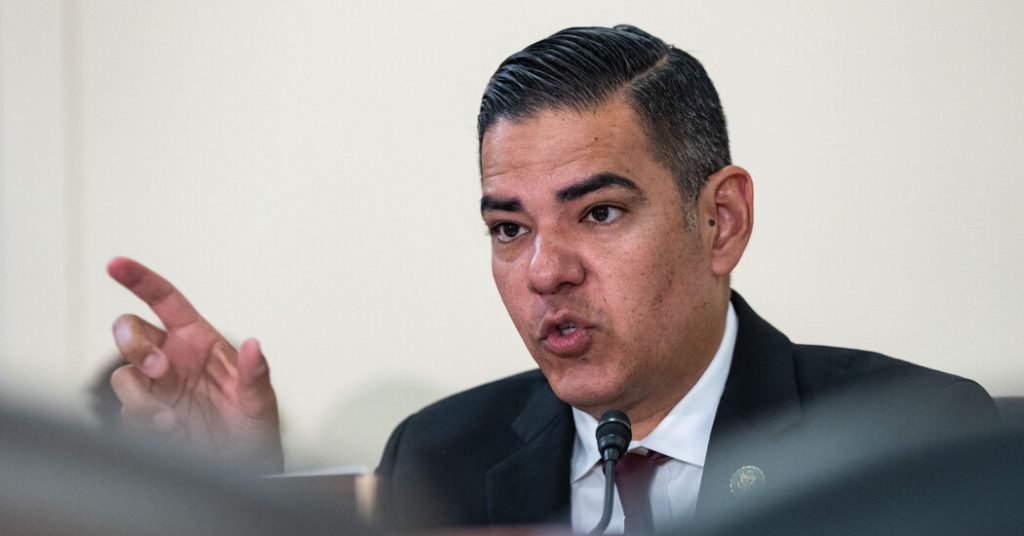Representative Robert Garcia, a California Democrat and the first Peruvian-born person to serve in the House, recently raised concerns about the treatment of Indigenous workers in Peru who source the rare vicuña wool for luxury design house Loro Piana. Despite being a first-term lawmaker with a background unrelated to fashion, Garcia used his platform as a member of Congress to demand answers from Loro Piana executives. He questioned how the company could justify raising prices on its high-end products while reducing payments to those who harvest the raw materials.
Garcia’s involvement in the Loro Piana issue is just one example of a trend in Congress where lawmakers leverage their unique backgrounds and personal stories to speak out on issues that matter to them. Despite not considering himself a fashion icon, Garcia felt compelled to address the exploitation of Peruvian Indigenous workers in the luxury fashion industry. He highlighted the significant disparities between the exorbitant prices of Loro Piana products and the decreasing wages received by those sourcing the vicuña wool.
The conflict between Loro Piana and Garcia stems from a Bloomberg report that shed light on the relationship between the luxury brand and the Indigenous communities in Peru that harvest and sell vicuña fur. Vicuña wool is highly prized for its quality and is the source of one of the most expensive fabrics in the world. Loro Piana, a subsidiary of the LVMH Moët Hennessy Louis Vuitton luxury goods empire, has been accused of exploiting these workers while profiting from their labor.
Loro Piana, known for its rare and expensive materials, has faced pushback from Garcia and others in Congress for its labor practices. The company’s chief executive, Matthieu Garnier, defended Loro Piana’s engagement with the community and conservation efforts in Peru. However, Garcia remained unsatisfied with Garnier’s response, citing the ongoing exploitation of Indigenous communities in lower-income regions. He emphasized the need for real economic opportunities and fair compensation for those involved in the vicuña wool supply chain.
The vicuña has a long-standing cultural significance in Peru, with its fine fur historically considered sacred and worn by Incan royalty. Despite its reverence in Indigenous folklore, the exploitation of those harvesting the vicuña wool has raised ethical concerns. Lawmakers like Garcia are using their oversight powers to address alleged labor abuses within the luxury fashion industry. The bipartisan effort to hold major corporations accountable for their treatment of workers is part of a broader movement in Congress to confront exploitation in various industries.
In his ongoing efforts to advocate for fair treatment of Indigenous workers, Garcia is challenging Loro Piana and other luxury brands to prioritize ethical practices in their supply chains. By using his position in Congress to bring attention to the plight of these workers, Garcia is shedding light on the exploitation that often occurs in communities with limited access to resources. Through his advocacy, Garcia hopes to effect change and improve the working conditions and wages of those involved in the production of high-end luxury goods like the vicuña wool sourced in Peru.








